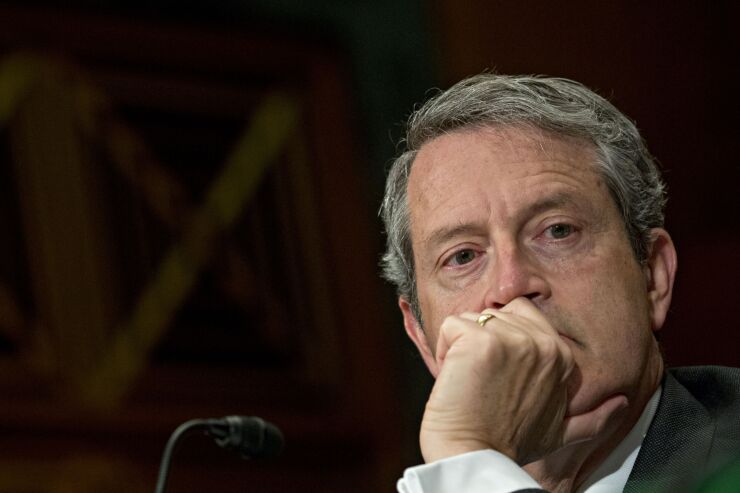Receiving Wide Coverage ...
Unfinished business
Randal Quarles, the Federal Reserve’s vice chairman for supervision, said “the market turmoil triggered by the coronavirus pandemic early this year
“While swift and decisive policy action succeeded in calming markets, this does not mean that our work is complete,” Mr. Quarles said in a speech to the Securities Industry and Financial Markets Association. “The Covid event revealed a banking system that withstood this shock quite well with limited official sector support, and a nonbank system that was significantly more fragile.”

“Mr. Quarles said that the Financial Stability Board, a global group of regulators that he leads, will publish a report in November that will both
Costly settlement
Goldman Sachs will
“A Goldman subsidiary tied to the misconduct in Asia is expected to plead guilty but the parent company won’t face prosecution, avoiding a felony mark that could have crippled its ability to do business. The arrangement, known as a deferred prosecution agreement, would allow officials to pursue charges later if Goldman errs again.”
“The bank will also
“The agreement is a black eye for Goldman, which has never before had to plead guilty in a federal investigation. And a statement of facts to be released with the settlement will put the bank in a poor light, according to two people familiar with the document.”
Wall Street Journal
Rule change
The Federal Deposit Insurance Corp.’s board voted 3-1 Tuesday “to adopt new rules
“The requirement, which takes effect in July 2021, is part of a coordinated effort by international bank regulators to address a source of instability that contributed to the 2007-09 financial crisis. The rule requires 20 banks with $100 billion in consolidated assets to match the funds they will need for their cash outflows over the course of one year with ‘available stable funding’—such as consumer deposits, regulatory capital or long-term subordinated debt.”
“In a notable shift, the final liquidity rule
Just in case
“Lenders are worried the days of a business-friendly Consumer Financial Protection Bureau are numbered. Mortgage lenders and financial-technology firms negotiating with the agency over potential settlements are
“A Biden administration is expected to embrace a more aggressive role for the CFPB, which in many ways has grown less forceful during President Trump’s time in office. For the financial sector, a reinvigorated CFPB could be one of the most immediate impacts of a Biden presidency.”
Downgraded
Moody’s Investors Service
Financial Times
Communication breakdown
Morgan Stanley’s two most senior commodities traders were fired “for using WhatsApp and other unauthorized messaging platforms, reflecting
Although Morgan Stanley “found no evidence of wrongdoing” by the two traders, “using the channels is a breach of policy in itself, since the bank restricts communications to channels it can monitor, in line with regulatory guidance on supervising communications.”
New York Times
Not far enough
The Treasury Department has so far allocated only $195 billion of the $454 billion it was authorized to use to back Federal Reserve lending programs, which “have made just $20 billion in loans, far less than the suggested trillions.”
“The programs have partly fallen victim to their own success. They have also been undercut by [Treasury Secretary Steven] Mnuchin’s fear of taking credit losses, limiting the risk the government was willing to take and excluding some would-be borrowers. And they have been restrained by reticence at the central bank, which has extended its authorities into new markets, including some — like midsize business lending — that its powers are poorly designed to serve. The Fed has pushed the boundaries on its traditional role as a lender of last resort,





